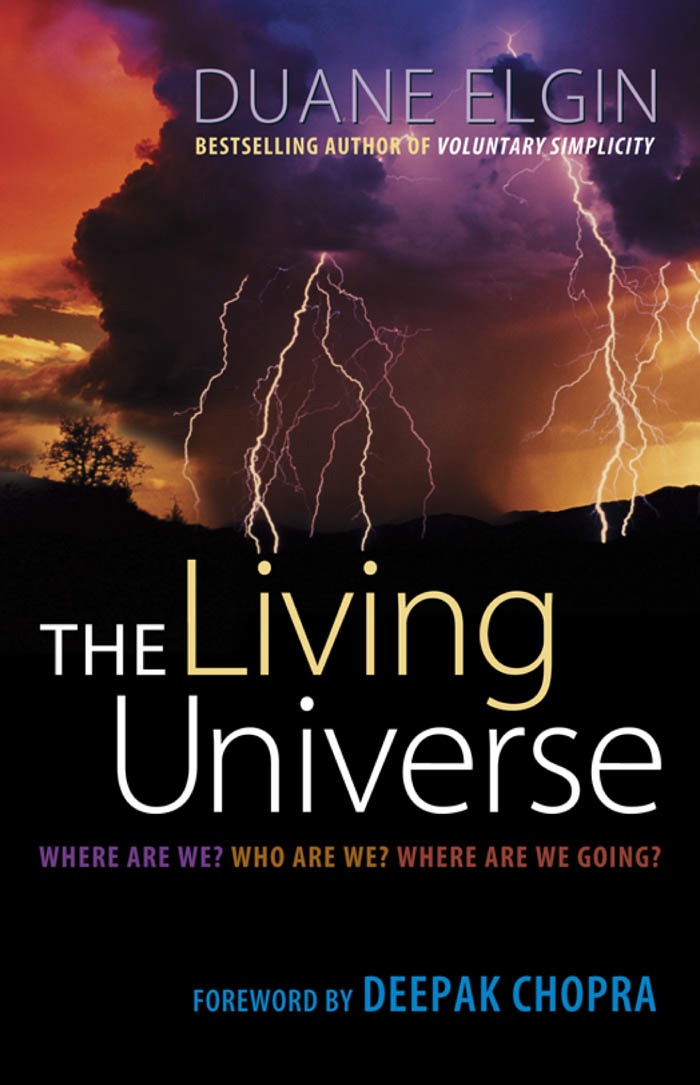Traditionally, science has regarded the universe as made up of inert matter and empty space. Duane Elgin brings together extraordinary evidence from cosmology, biology and physics to show that the universe is not dead but rather uniquely alive, an insight which, he shows, is in harmony with all the world’s major spiritual traditions and the original wisdom of indigenous perspectives. He explores how this view radically transforms our concept of ourselves, our place in the cosmos, and the evolutionary trajectory of the human family. The non-living view of the universe has led to rampant materialism and global environmental degradation. To transform our planetary crises, we need to move past a paradigm of separation and exploitation and learn to live sustainably on the Earth, in harmony with one another, and in communion with the living universe. We are beings of cosmic connection who are learning to live in a living universe. Foreword by Deepak Chopra. Published by Berrett-Koehler, 2009.
““No book describes more accurately or guides us more powerfully to the world now waiting to be born.” “
— Marianne Williamson, author of A Return to Love
“Vital reading for those wanting to explore and participate in the nature of reality at its most profound levels.”
— Edgar Mitchell, ScD, founder, Institute of Noetic Sciences and Apollo 14 astronaut
“A masterful, potent, and luminous contribution to both human knowledge and spiritual awakening.”
— Jean Houston, cofounder, Foundation for Mind Research and author of 26 books, including “A Passion for the Possible”
“It’s all here—brilliant discoveries of contemporary science, key insights of the world’s religions, and practical programs of action for bringing forth a new world.”
— Brian Swimme, PhD, Professor of Cosmology, California Institute of Integral Studies, co-author, “The Universe Story”.
“The Living Universe invites the reader into an integral worldview that matters deeply for our planetary future. Without it we are lost; with it we have the possibility of creating a viable Earth community. This is a powerful contribution to envisioning and embodying such a community.”
— Mary Evelyn Tucker, Yale University, Forum on Religion and Ecology
